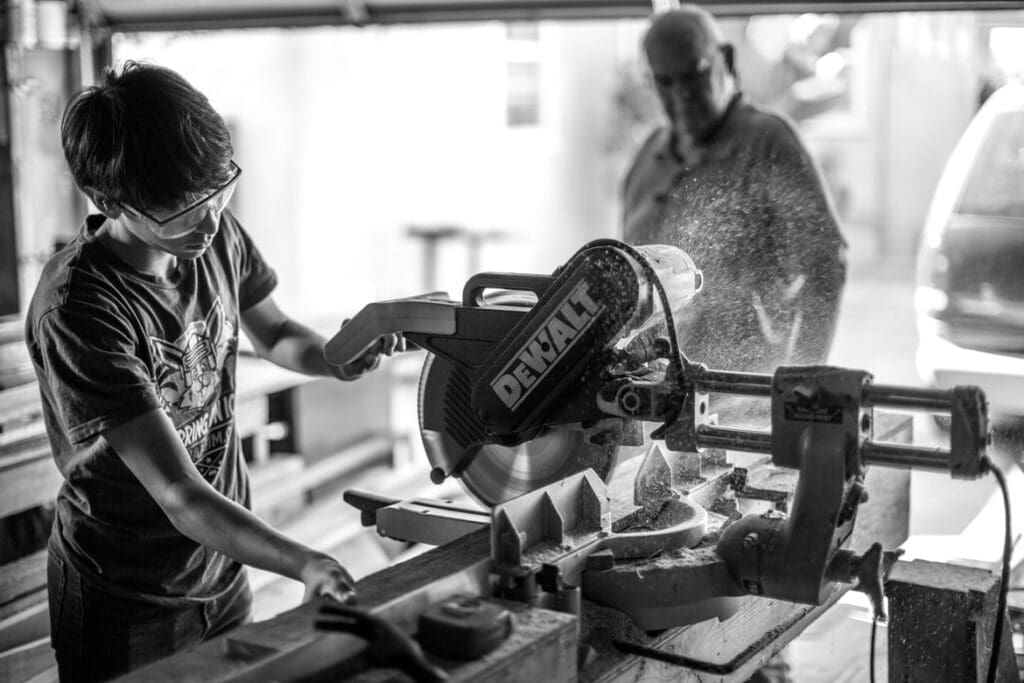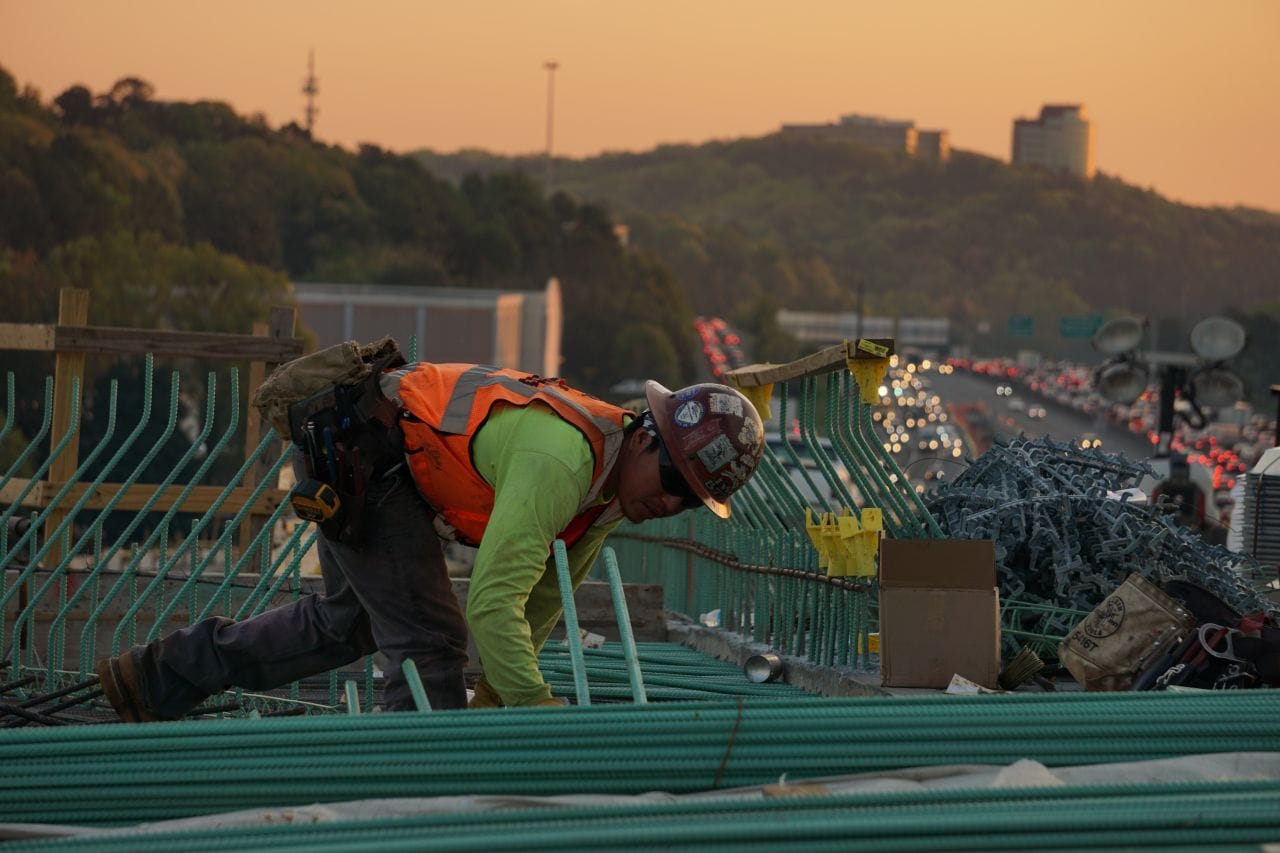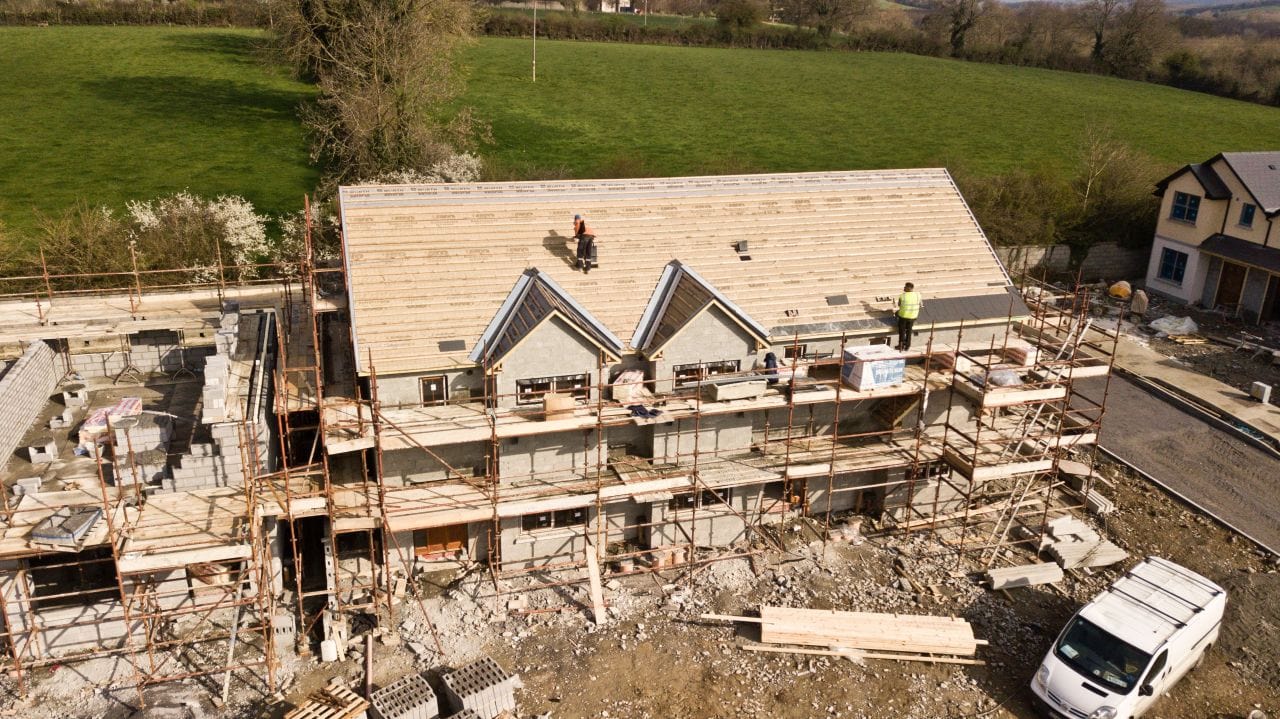The professional builder has been compared to many other roles, including that of a conductor, a captain of a ship, and even a commander leading an army. It is the builder's responsibility to manage the countless individuals and materials required to bring a set of blueprints to life. The builder's responsibility is to make sure that the schedule is met and that the end result is what the customers expected.
This duty should ideally start far before the first spade hits the dirt. Having a builder on board from the start of the design process allows them to ensure the home can be constructed in the most time- and money-saving manner. There will be major savings in the long run if you hire a builder now.
Following the completion of the blueprints, the builder is responsible for coordinating with the relevant zoning and building authorities to obtain the necessary approvals. Contractors who make a living in this field are experts in navigating the building code landscape and maintaining positive relationships with municipal officials. The building department is more likely to investigate a permitting process submitted by a homeowner or a small building firm than one submitted by a well-established specialist contractor with a history of successful management and high-quality work.
Relationships with reliable subcontractors are another strength of professional builders. The prices supplied to the builder will likely be lower than the pricing offered to anybody else because the builder is a reliable source of repeat business for the contractors. Once construction has begun, a builder's ability to oversee the job effectively becomes critical. Examples of such abilities are:
They guarantee that the job continues without a hitch by coordinating the arrival of all personnel and supplies. Weather and late deliveries are only two of the many factors that can significantly alter construction schedules. Homeowners rarely get a glimpse of the effort put in by the builder to constantly reschedule everyone. Additionally, they monitor the project to ensure that all trades are producing high-quality results. The builder is well-versed in all of the necessary trades and has solid working relationships with all of the necessary subcontractors. For instance, if the concrete builder is reluctant to delay work because it is too chilly to pour a slab, the builder will know to stop the process and have the ability to do so.
It was a means of problem-solving and prevention. There are a million things that may go wrong while building a new custom home, and they all will if the project isn't managed by someone with the appropriate level of expertise and experience. It's a huge relief for homeowners to have a professional builder handle problem-solving.
What Makes A Good Home Builder?
Reputable function of residential construction By the time you're ready to choose a house builder for your new home project, you've probably given the endeavour months of thinking and planning. From thinking about what your ideal home might look like to answering the practical considerations of where you might build this fantasy home (and how much it might cost), there's a lot to consider. You need someone who can take your elaborate plans and ideas and implement them immediately. This is a monumental choice, one of the first and most crucial of your entire journey. Investing in a custom home build means working closely with these folks for weeks or months on a very personal and intricate undertaking. Your choice of builder will have a significant impact on the timeline, budget, and quality of your new house.
Characteristics Of A Good Homebuilder
Finding a reliable builder for your new house might be challenging. Building contractors come in different shapes and sizes, so it might be difficult to find a reliable one (especially if you've never done any construction before). How do you even begin? The top homebuilders all have a few things in common that are essential. If you can find a contractor with these traits, you may rest easy knowing that your project is in capable hands.
Willing And Able To Serve As Your Advisor Throughout The Design Phase
A reliable house builder should take the opportunity to consult with you well before construction ever begins. Now is a pivotal time to obtain help and direction at your disposal. You may keep your ideal design within your financial constraints with the help of an experienced builder who is eager to collaborate with you and your architect. Most significantly, they may use their extensive industry knowledge to address any buildability concerns you may have with your home design before the blueprints are finalised, saving you the trouble and money of a last-minute revision. They are able to contribute original concepts to the design process and provide feedback on areas where they see potential for cost savings and value engineering. In the end, they know what to do because they've done it before on other projects.
Trustworthy And Service-Oriented
A strong bond exists between the homebuyer and the construction company. The builder you hire should demonstrate true dedication and a desire to be your trusted champion throughout the entire journey, as the two of you are working together on a very personal project. They should treat your house like it was being built for their own family, and your possessions as they were their own. When you've located such a reliable contractor, how will you recognise them? They will, above all else, be inquisitive. In other words, they will take into account your priorities after hearing your own. Your contractor should be functioning as your representative on the job site and following only your instructions. If you have faith in your builder, you won't become a building horror story.
Knowledgeable and Experienced
Truth be told, anyone can pick up a hammer and start constructing. That's great news since it implies there are loads of openings for ambitious new groups to enter this field. The bad news is that this means would-be homeowners have fewer safeguards to rely on. Most of the construction-related horror stories we've heard have their roots here. You don't want to be anyone's guinea pig when it comes to a project of this nature, and building a home is a huge investment in terms of money, and emotion.
Many aspects of creating a custom home can only be understood by someone with extensive experience in the field.
- A reputable builder will have a long track record of satisfied clients and quality residences.
- There must be something about the way the builder has been operating for decades that customers have continued to seek out their services.
- After doing this for a while, a contractor's portfolio will likely include a wide variety of house designs, proving that they are capable of handling any kind of structure. Because of this, when issues do arise (and they always do; no project is ever completely problem-free), an expert constructor will be able to find effective solutions swiftly.
- You need a powerful and seasoned group, too.
The success of your home's construction on schedule and within budget depends on the combined efforts of both the on-site construction manager and the office-based project manager.
Reputation
A successful track record is inextricably linked to one's level of experience. You want to hire a contractor who has an outstanding reputation among their previous customers and partners. The success of a custom house building company hinges on the quality of its client connections. In addition, a top-notch home builder will be well-connected and have access to a wide range of reputable subcontractors and suppliers that will work quickly and competently to complete your project to your satisfaction.
Transparent and Responsive
Your relationship with your house builder is no different from any other in that it requires quality and effective communication to succeed. Maintain an open, cheerful, and professional tone in all of your interactions with potential homebuilders. They should welcome all of your inquiries and respond in a prompt, patient, and informative fashion to each one. If they are able to communicate like this now, it bodes well for the rest of the building process. There should be an air of openness and trust between you and your builder. They ought to be accessible whenever you need updates and ready to accommodate your schedule for frequent site visits so that you may stay apprised of progress.
Detail-Oriented And Quality-Focused
No shortcuts should be taken during building. Locate a home builder whose standards are as least as high as yours. Your builder shouldn't let anything slip by at any point. First, they need to examine your engineering and architectural drawings to identify and fix any problems before you break ground. Because of this, you won't have to spend money on having the work redone or fixing the mistakes that were made. You can expect your home to perform better and survive longer if your builder is up-to-date on the latest building processes and materials and refuses to compromise on quality.
Organised Systems And Processes
If you want to succeed in this industry, organisation is key. There are literally hundreds of moving parts that must be coordinated in order to complete a custom house building project. Building a house is a lot like an orchestra, and your builder is the conductor making sure everyone plays in harmony. Maintaining a tight timetable and a healthy budget calls for well-thought-out processes and systems from inception to finish. Some of the most important tasks that your contractor must be able to complete for you are as follows:
- Bidding Process: Your builder should carefully and methodically review bids from all relevant parties to ensure an accurate and complete budget.
- Design Selections Coordination: As your home is being constructed, you will be faced with dozens, if not hundreds, of minor choices. They should have a system in place to expeditiously assist you in making design decisions to avoid setting back the timeline.
- Pre-Construction Process: To ensure that the building process begins without any hiccups, pre-construction paperwork must adhere to a strict system and checklist to guarantee that all necessary permits and approvals are obtained in a timely manner.
- Construction: Subcontractors' schedules need to be meticulously tracked, and regular meetings need to be watched to ensure that no time is wasted due to misunderstandings or delays.
Dedicated To You During And After The Warranty Period
The responsibility your builder has towards you and your house should not end on the day you take possession. They are confident in the quality of their job if they offer a lengthy warranty. Look for a warranty of at least 1 year on all materials and labour, 5 years on all mechanicals, and 10 years on the house's structural integrity. On the other hand, we believe that a warranty is just the beginning. Perspective is also important. They should respond to your warranty claim enquiry with enthusiasm, competence, and good humour. Feel free to contact them at any time, even after the warranty period has ended, if you have any questions or concerns. A builder who cares about his work and about his clients should be a partner and a resource for the rest of your lives.
8 Reasons to Choose New Home Construction
Peace of Mind
The purchase of a brand-new home may provide the buyer with a greater sense of calm. You get to watch as your house is built from ground up, so you know that everything inside is brand spanking new. Concern over what the inspection might turn up is a major source of anxiety for homebuyers in the midst of a resale transaction, and that anxiety only increases until the settlement date arrives.
Less Maintenance
Buying a brand-new house means getting brand-new everything. Everything from the windows and roof to the HVAC and appliances is brand new, reducing the likelihood of breakdowns. Maintenance and repairs to one's house are time-consuming and often expensive. And because modern homes require less upkeep, you can use that extra time doing the things you enjoy most.
Increased Energy Efficiency
A home that is efficient in its use of energy is beneficial not only to the homeowner, but to the environment as well. Standards for energy efficiency in newly constructed homes are significantly more stringent now than they were in the past. Home comfort can be increased and electricity costs decreased with the installation of energy-efficient elements including an airtight building envelope, correctly fitted insulation, and High Efficiency windows and doors. Homes constructed employing green building methods not only save homeowners money but also have a smaller ecological footprint.
Ability To Personalise
Most builders will allow you to customise your home in some way, even if you aren't buying a custom house. Alterations can be made to the framework, such as the amount of bedrooms and bathrooms, or the interior, like the appliances and finishes that are installed. New home construction could be the best option if you want to personalise your house before you move in.
New Homes Offer Improved Air Quality
It's possible that newer homes have better air quality inside than older ones do. Having a building envelope that is both airtight and watertight, using building wrap, air sealant, and insulation that has been correctly installed, and painting and carpeting with low-VOC (volatile organic compound) levels are all ways to better the quality of air inside a building. Get in touch with your contractor to find out whether they provide any of the above-mentioned options for better indoor air quality.
Offers the Latest “Smart” Home Technology
You may prefer a new building if you have an insatiable appetite for cutting-edge gadgets and fancy the inclusion of "smart" technologies in your abode. When you're building a new house, you can easily install all the high-tech wiring for things like home security, lighting controls, and audio.
Includes Builder’s Warranty
The peace of mind provided by a builder's warranty is an attractive selling point for newly constructed homes. Appliances, fixtures, materials, labour, and the building itself are often covered by a builder's warranty. New house building may be preferable to remodelling if you're worried about expensive repairs down the road. However, you should read the warranty carefully to learn what is not covered and what can void it.
Extended Buying Period Options
When compared to buying an existing house, the buying timeline alternatives provided by new home builders are often more flexible. Time dates for purchases might be anywhere from now to next year. You like to lock in a low interest rate, but you need extra time to get your present house ready to sell. You may lock in a cheap mortgage rate on a brand-new building today, and you'll have plenty of time to pack and organise before you have to move.
If you've read this far, you might be starting to think that a new building is the best option for you. Then you might have some new inquiries. The time required to construct a house, for instance, is a good illustration. What criteria should I use to make decisions about my house? What are the distinctions between the available framework and skins? This All-Inclusive Guide to Buying a New-Construction Home is packed with information like this, as well as comparisons, recommendations, and links to useful resources to help you navigate the process.
FAQs About Home Builder
There may be restrictions on the type of building you can construct in a given area due to factors like zoning regulations imposed by a homeowners' association or the inability of the land itself to accommodate the structure. If a construction company is going to assist you in finding land, they should check to make sure it is suitable for your intended use.
You can get a written guarantee of the home's quality and structural soundness from a licensed builder, and commercial home warranty organisations usually only cover homes constructed by such builders.
Builders have access to a wide network of professionals in the construction sector. As a result, they may be aware of unlisted parcels of property that are available for purchase. In addition, builders typically acquire land before beginning construction on a home.
The builder's insurance policy normally covers this risk if they own the lot. If you consult a builder before purchasing a lot, you won't have to worry about this either. Considering all these benefits, it only makes sense to hire a builder as your first move.
A good, licenced builder will have prior knowledge of what must be done to conform to building codes because of their familiarity with the permitting and inspection processes (and since a licence is often required for the builder to seek permits in its name).



